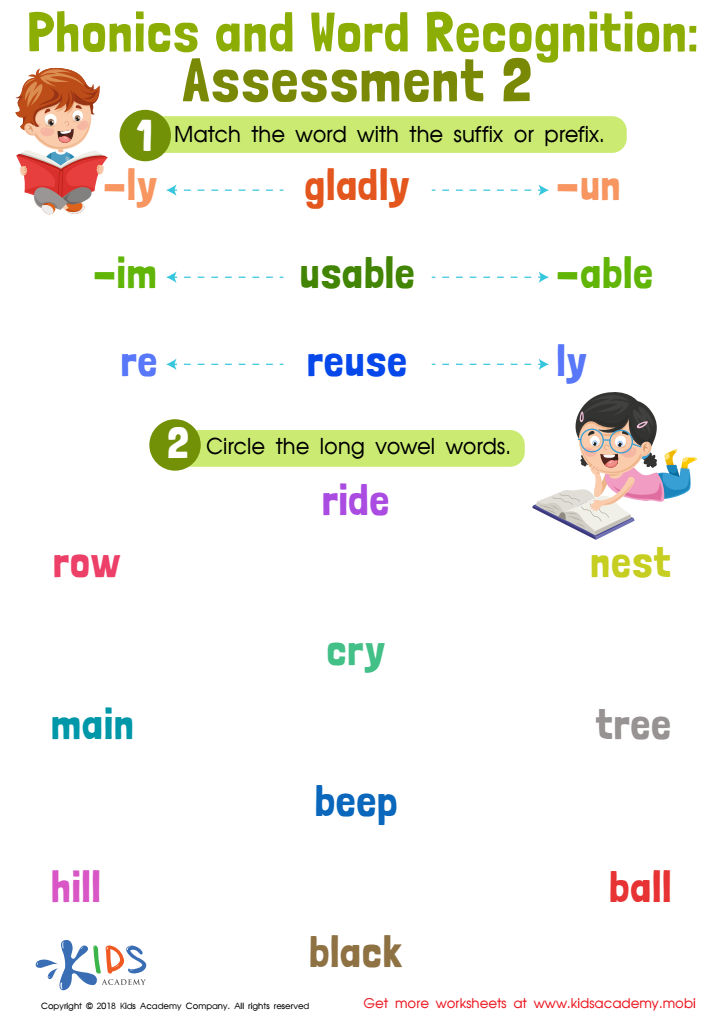Alphabet worksheets activities for Ages 8-9
5 filtered results
-
From - To


Phonics and Word Recognition: Assessment 3 Worksheet


Phonics and Word Recognition: Assessment 1 Worksheet


Phonics and Word Recognition: Assessment 1 Worksheet


Phonics and Word Recognition: Assessment 2 Worksheet


Phonics and Word Recognition: Assessment 2
Alphabet worksheets activities play a crucial role in early childhood education, serving as foundational tools for literacy development. These engaging and interactive activities are specifically designed to introduce young learners to the alphabet, making the process of learning letters and sounds both enjoyable and effective. By integrating alphabet worksheets activities into the learning routine, children can significantly benefit in various ways.
Firstly, these activities promote letter recognition, a fundamental skill that forms the basis of reading and writing. Through repeated exposure to the letters in different worksheets, children become familiar with the shapes and names of each letter, enabling them to quickly identify them in texts. This familiarity is the first step towards fluent reading, as recognizing letters effortlessly allows for smoother transition to word formation and sentence reading.
Moreover, alphabet worksheets activities are instrumental in enhancing phonemic awareness. As children engage with these worksheets, they learn not only the letters but also the sounds associated with each one. This understanding of letter-sound correspondence is critical for decoding words, an essential skill in early reading development. By practicing with worksheets, children can improve their ability to sound out words, paving the way for reading proficiency.
Additionally, these activities offer the opportunity for fine motor skill development. Many alphabet worksheets involve writing exercises, where children trace or write letters. This practice not only reinforces letter recognition but also improves handwriting skills. The act of holding a pencil and forming letters contributes to the development of hand-eye coordination and dexterity, skills that are important not just for writing but for many other aspects of daily life.
Furthermore, alphabet worksheets activities can be tailored to meet the diverse needs of learners. They can be designed with varying levels of difficulty, incorporating puzzles, matching games, coloring pages, and more. This versatility ensures that children remain engaged and challenged, fostering a love for learning that can last a lifetime.
In summary, alphabet worksheets activities are a valuable resource in early education, offering a multifaceted approach to learning that supports letter recognition, phonemic awareness, fine motor skills, and personalized learning experiences. Through these activities, children can lay a strong foundation for literacy, setting the stage for academic success.
 Assign to the classroom
Assign to the classroom












